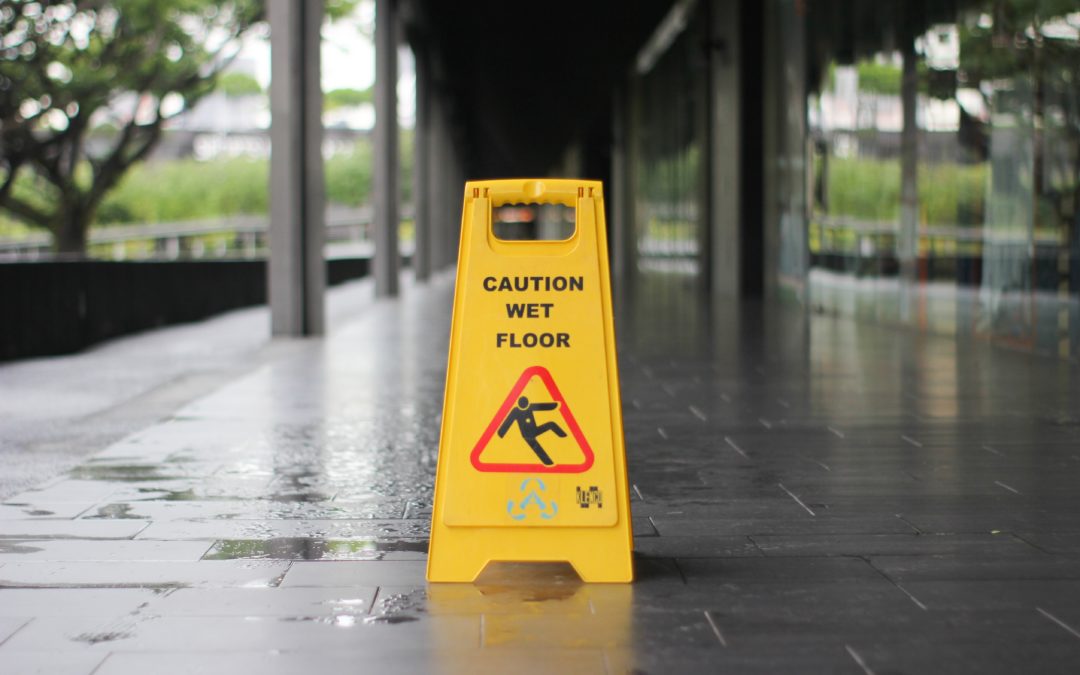A frequently asked question by many of my clients is: “How does my commercial (CGL) general liability insurance protect my business?”
Here’s a common example of the risk protection CGL insurance can provide:
You own a popular fast food restaurant. Over the weekend, a customer slipped on some wet flooring near your soda fountain. He injured his back and decides to sue your restaurant for damages. Your Commercial General Liability (CGL) Insurance will pay any legal or defense costs.
What does CGL cover?
If your business unintentionally causes bodily injury, property damage, personal injury, or advertising injury to a third party, CGL will pay for the legal fees, settlements, judgments, and even medical payments.
General Liability Insurance is one of the most common types of commercial insurance that businesses purchase. If you or an employee accidentally harms another person or property, CGL can help protect your business financially if you are sued.
Accidents can happen to anyone at any time:
Example: Your HVAC company is delivering and installing a new furnace in your client’s basement. A wall was damaged in your client’s home by your installers as they were carrying the furnace to the basement. Your CGL policy will pay to repair your client’s wall.
It should be noted that your CGL policy does not provide coverage to damage in your own business property, just for damages to the property of others.
Furthermore, the products and completed operations portion of your CGL policy covers property damage or bodily injury caused by your company’s products or services. This applies to incidents that happen away from your business.
Products and completed operations consist of two coverage areas: products liability and completed operations liability. Products liability covers your business if the products you sell have defects or design flaws that result in bodily injury or property damage.
Example: Your business manufactures hair styling tools. Due to a design flaw, a hairdryer your company manufactures overheats and explodes in flames, seriously burning a customer. The customer’s medical expenses and loss of income would be covered by the products liability portion of the CGL policy.
Completed operations covers your business if there is property damage or bodily injury caused by work your company has completed for a client.
Example: Your company does residential plumbing work. A pipe bursts in a newly remodeled bathroom your company plumbed, causing extensive water damage. Completed operations coverage would cover the water damage to the home.
Furthermore, advertising injury, copyright infringement, and reputational harm your business causes by defaming someone else or someone’s company is also covered by your CGL policy. It protects against offenses made by you or your staff during the course of business, such as libel, slander, disparagement, or copyright infringement in advertisements. A class-action lawsuit filed against your business alleging advertisements constituted misleading information is also covered.
Example: Your marketing manager publishes an advertisement using an Instagram celebrity’s face without permission. The celebrity sues your company for invasion of privacy. Your CGL policy will pay for the legal fees, settlements, or judgments.
In the event of a claim against your business, CGL insurance can help your company cover:
- Costs for property damage claims against your business
- Medical expenses and loss of income if someone gets injured at your company
- Advertising injury claims against your business
- Administrative costs to handle covered claims
- Court costs, judgments, and settlements for covered claims
What doesn’t CGL cover?
It’s important to understand what risks CGL insurance does not cover as well. For some claims, you’ll need different types of liability insurance.
A general liability policy won’t help your business with:
- commercial auto accidents
- employee’s illness or injuries
- damage to your own business property
- errors in professional services
- claims that cost more than your CGL’s policy limit
Who needs CGL insurance?
Consider buying CGL insurance if you:
- have a store, office, or building that’s open to the public, clients, or vendors
- handle or work near client property
- advertise or create marketing materials for your business
- use social media professionally or personally
Still have questions or need a quote? Healy Group commercial insurance advisors have years of experience helping small and mid-size businesses as well as non-profits tailor insurance plans to provide the optimal balance of coverage, risk management, and affordability.
About the Author
 John Kersey joined Healy Group in 2003 and has 31 years of experience designing risk management programs for commercial clients. As a risk management advisor, John strives to build strong relationships with his clients and business partners to understand their needs better and provide the best risk management strategies for their unique situations.
John Kersey joined Healy Group in 2003 and has 31 years of experience designing risk management programs for commercial clients. As a risk management advisor, John strives to build strong relationships with his clients and business partners to understand their needs better and provide the best risk management strategies for their unique situations.


Recent Comments